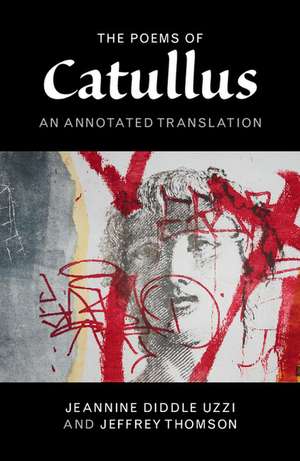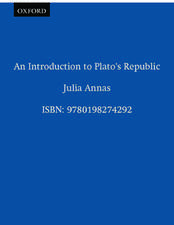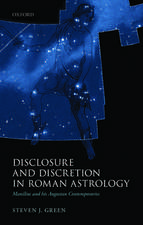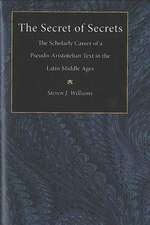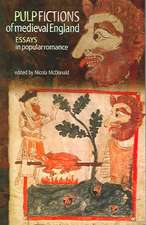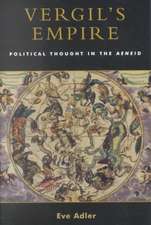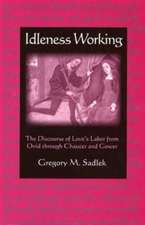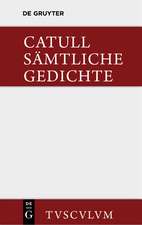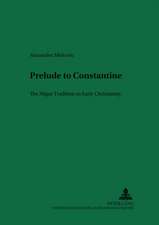The Poems of Catullus: An Annotated Translation
Autor Catullus Jeannine Diddle Uzzi Traducere de Jeffrey Thomsonen Limba Engleză Paperback – 3 iun 2015
| Toate formatele și edițiile | Preț | Express |
|---|---|---|
| Paperback (3) | 33.14 lei 3-5 săpt. | |
| Mint Editions – 30 noi 2020 | 33.14 lei 3-5 săpt. | |
| Oxford University Press – 9 oct 2008 | 57.15 lei 11-16 zile | +18.79 lei 7-13 zile |
| Cambridge University Press – 3 iun 2015 | 222.82 lei 6-8 săpt. | |
| Hardback (1) | 547.81 lei 6-8 săpt. | |
| Cambridge University Press – 10 iun 2015 | 547.81 lei 6-8 săpt. |
Preț: 222.82 lei
Nou
Puncte Express: 334
Preț estimativ în valută:
42.64€ • 44.43$ • 35.30£
42.64€ • 44.43$ • 35.30£
Carte tipărită la comandă
Livrare economică 03-17 aprilie
Preluare comenzi: 021 569.72.76
Specificații
ISBN-13: 9781107682139
ISBN-10: 1107682134
Pagini: 230
Dimensiuni: 128 x 197 x 13 mm
Greutate: 0.23 kg
Editura: Cambridge University Press
Colecția Cambridge University Press
Locul publicării:New York, United States
ISBN-10: 1107682134
Pagini: 230
Dimensiuni: 128 x 197 x 13 mm
Greutate: 0.23 kg
Editura: Cambridge University Press
Colecția Cambridge University Press
Locul publicării:New York, United States
Cuprins
Introduction; The poems; Notes.
Recenzii
'The bawdy poet Catullus wrote in the late Roman Republic, in Latin, but he will always belong to the world at large and to the present tense - rowdy, randy, excoriating, funny, acrobatic and endlessly vernacular. He is our shameless poet of the locker-room boast and the licentious man-about-town. He sings in the gossipy, fierce voices of Eros and Id without apology, and we love him for this particular exhibition of the glory of the human spirit. Catullus is so much of the present tense that his poetry requires the fresh transfusion of re-translation on a regular basis, needs a booster shot of the vernacular to restore the rose to his cheeks. In these fine new translations, Jeffrey Thomson and Jeannine Uzzi perfectly catch the lively Catullan blend of eloquence and vulgarity. Thus, Catullus, and his poems, get to party one more time.' Tony Hoagland, poet and writer
'Uzzi and Thomson's American English voice erupts from Catullus' Latin and speaks directly to us, as Catullus did to his contemporaries. A literary translation (as opposed to a literal trot) of poetry of any age should be able to take its place in the contemporary poetic scene. This is what Uzzi and Thomson's translation is poised to do.' Stanley Lombardo, University of Kansas
'… A wonderful translation … the introduction gives an excellent handle on this poetry for a contemporary audience. I'm glad that it is there, for it makes [my work teaching Catullus] so much easier. The Eminem comparison will especially help. The role of vituperation [is laid out] quite gracefully.' Dana Burgess, Charles E. and Margery B. Professor of Humanities, Whitman College, Washington
'The volume will interest classicists but is directed to a general audience. … a translation that will have wide appeal to contemporary readers for its concision, frankness, and fine ear for good colloquial idioms …' translated from GNOMON
'Uzzi and Thomson's American English voice erupts from Catullus' Latin and speaks directly to us, as Catullus did to his contemporaries. A literary translation (as opposed to a literal trot) of poetry of any age should be able to take its place in the contemporary poetic scene. This is what Uzzi and Thomson's translation is poised to do.' Stanley Lombardo, University of Kansas
'… A wonderful translation … the introduction gives an excellent handle on this poetry for a contemporary audience. I'm glad that it is there, for it makes [my work teaching Catullus] so much easier. The Eminem comparison will especially help. The role of vituperation [is laid out] quite gracefully.' Dana Burgess, Charles E. and Margery B. Professor of Humanities, Whitman College, Washington
'The volume will interest classicists but is directed to a general audience. … a translation that will have wide appeal to contemporary readers for its concision, frankness, and fine ear for good colloquial idioms …' translated from GNOMON
Descriere
An up-to-date translation of Catullus with a contemporary feel that showcases his radical voice and edgy sensibility.
Notă biografică
Gauis Valerius Catullus (c.84-54 B.C) was a Latin poet during the late Roman Republic. He was among the few Latin poets that wrote in the neoteric style, focusing on his own life rather than depictions of the classical heroes. Because he wrote about his daily life, which he spent in high Roman society, Catullus shocked but delighted his audience with his raw, and often profane poetry. Catullus¿ work is now considered a great source of education for the Latin language and lifestyle.
